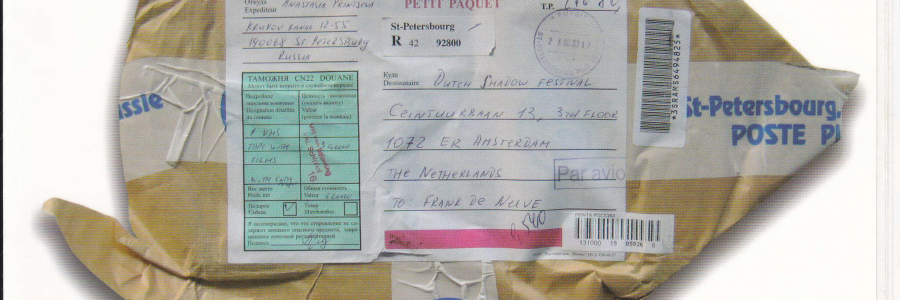by Michelle Iwema
Essential to the Shadow Festival is the integration of the filmmaker and the audience. the ballad of vicki and jake, by director Ian Thomas Ash, was shown during the 2005 Shadow Festival. Michelle Iwema was at the festival for Film Focus and spoke about the documentary with its American director.
the ballad of vicki and jake started in 2003 when American Ian Thomas Ash went to Britain as a student in the University of Bristol’s MA in Filmmaking course. During a class exercise covering sound recording, Ian and some of his classmates met some homeless people, among whom was Vicki.
– “Vicki and I clicked right away. We told the university we wanted to make a film about her, but they didn’t think it was a good idea. They thought that it would be too dangerous and that it could get quite complicated. But I knew I had to make this film even without the official help of the university. We found her again, and this is how the film started.”
Vicki had been struggling with addiction for years, but it seemed she was taking control of her life and the government offered her a council house to live in. She tells Ian that her eleven-year-old son, Jake, is the most important thing in her life. Jake’s father, Sid, although separated from Vicki, is still around in their lives.
– “We wanted to show the relationship between a mother and son, but as the film goes on, Jake is seen less and less. This is because he is basically an ordinary kid, and it wouldn’t have been interesting to focus more on him. He went to school, had a part-time job and played. Vicki was a completely different story. She was so energetic and full of life and you never knew what to expect. That is what was so fascinating about her and what we tried to transfer to the screen.”
Vicki decides to begin a stable life, but soon her new house becomes a drug den when Vicki’s old friends and Sid decide to crash there. Vicki cannot say no to them even when she realizes that the situation has become no good for her, surrounded with the constant temptation to take drugs. In the film, each time Ian and the cameraman visit her, things have gotten progressively worse.
– “I want to blame someone. I guess I blame the house. But that isn’t really fair because Vicki herself made the decision to allow those people into her house and to influence her. There was a guy, Brad, who had a lot of money. He was easily manipulated and gave everyone money for drugs. I think if she hadn’t gotten that house, if Brad hadn’t been there, things might have ended differently.”
From the start it is clear that Ian cannot keep a neutral position in the documentary. “I knew from the start that it would be impossible to keep my distance from Vicki as a subject because I felt very close to her. Vicki was always captivating and humorous and I learnt something from her every time we met. Keeping a distance was really impossible, and anyway, it was a give and take situation: we were open with her and she was open with us; we accepted her and she accepted us.”
At the end of the film there is an unexpected shock for the viewer who has spent more than an hour and a half following Vicki’s life and hoping that she accomplishes the goal she sets for herself at the beginning: to take control of her life.
– “It may sound strange, but from the beginning I knew that it was going to end badly for someone in that house. Honestly, I thought it was going to be Sid, because he had been quite ill, but I was wrong. I still haven’t come to terms with what happened. When I got the first question from the audience after the premier here in Amsterdam, I nearly broke down in tears. Fortunately someone’s mobile rang and the distraction allowed me to recover and catch my breath.”
In the film, Ian doesn’t show Vicki using drugs, even when a friend of hers demonstrates how to smoke crack. To the viewer it is pretty clear that Vicki must have also been using drugs at that time, but Ian won’t give a clear answer as to whether he has ever seen her taking drugs or not. One gets the impression that he doesn’t want to tarnish Vicki’s image, and sometimes it feels like the film has been edited as a kind of tribute to her. His close connection with Vicki is also revealed in that when the film gets sold, the profits will go into a trust fund for Jake.
– “I want people to learn from this documentary. I don’t want people to watch it and think that it was all predictable because Vicki is addicted to drugs. Vicki is a person, a person with a problem. Yes, she’s made mistakes, but she is a good mother. Anybody who sees the film can see that she loves Jake.”
Michelle Iwema was writing for Film Focus November 29, 2005 English translation by Peter Vonderen used by permission
© 2005 Film Focus
